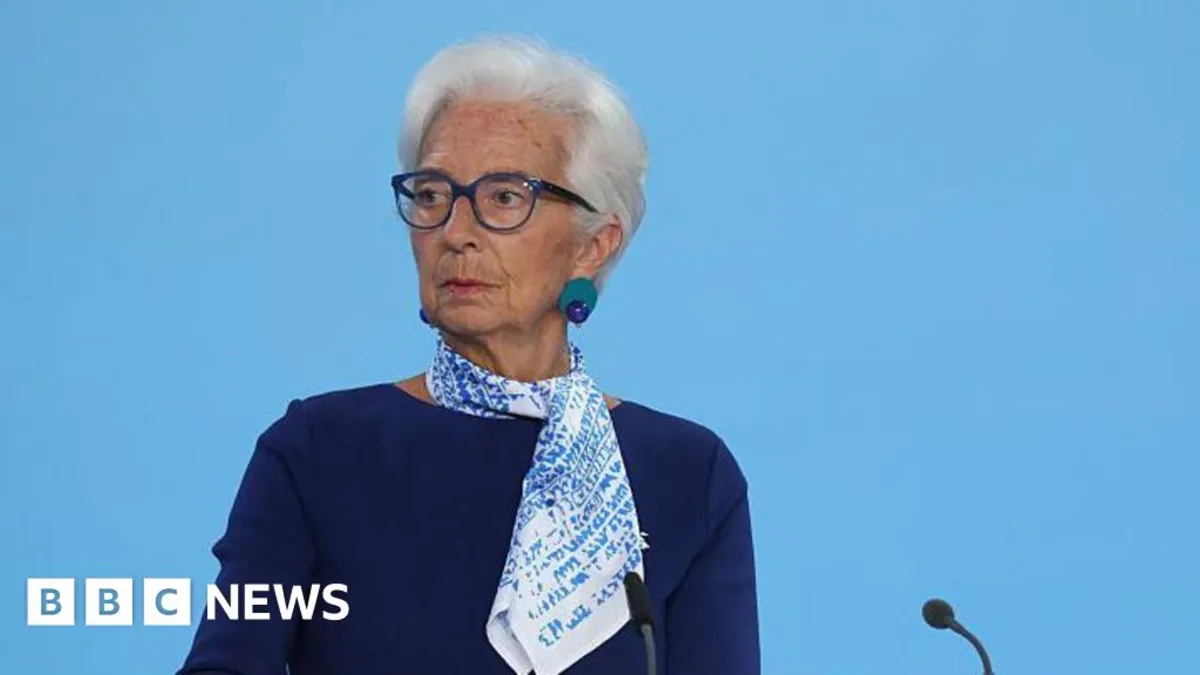
The head of the European Central Bank, Christine Lagarde, has issued a stark warning regarding the potential implications of President Donald Trump undermining the independence of the US Federal Reserve. Lagarde stated that such actions would pose a significant threat to the stability of not just the US economy, but also the global economy at large. The Federal Reserve, which plays a crucial role in promoting employment and maintaining price stability, must operate independently from political pressures to ensure effective governance.
Since taking office, President Trump has consistently criticized the Federal Reserve and its chair, Jerome Powell. His frequent attacks have included attempts to influence the bank's decisions, most notably when he sought to dismiss one of its governors, Lisa Cook, last month. Lagarde pointed out that if the Federal Reserve were forced to adhere to political pressures, it could lead to severe economic repercussions not only in the United States but around the world.
The Federal Reserve is the central bank of the United States, tasked with setting monetary policy to achieve its dual mandate of maximizing employment and stabilizing prices. As an independent entity, the Federal Reserve is designed to make decisions free from government intervention. However, President Trump's ongoing dissatisfaction with the Fed's interest rate policies has raised concerns about the potential for increased political influence over the bank's operations.
President Trump has publicly expressed his desire for significant cuts to US interest rates, aiming to lower them from the current target range of 4.25% to 4.5% down to below 1%. His rationale is rooted in the belief that lower rates would stimulate economic growth and reduce the government’s borrowing costs. Despite these pressures, the Federal Reserve has maintained its current rates since December of the previous year, largely due to persistent concerns over US inflation.
In a recent interview with Radio Classique, Lagarde elaborated on the implications of a potential shift in control over US interest rate policy. She emphasized that if the Federal Reserve were to lose its independence, the consequences could be dire for both the US economy and global markets. "If that policy wasn't independent anymore, if it was dependent on political diktats from one person or another,” she noted, “the balance of the US economy—and consequently the impacts that has on the world as a whole—would be very worrying.”
Despite Trump’s attempts to exert influence over the Federal Reserve, Lagarde highlighted the practical difficulties he would face in attempting to take control. The US Supreme Court has already established that a Federal Reserve governor can only be dismissed for gross misconduct. Given that the Federal Reserve's interest rate-setting committee is composed of seven governors and regional bank presidents, it would be a complex challenge for Trump to secure a majority aligned with his policies.
President Trump’s relationship with Jerome Powell has been tumultuous, despite Powell being appointed during Trump’s first term. The two have often clashed over monetary policy, with Trump describing Powell as a “numbskull” for maintaining higher interest rates that he claims hinder housing affordability. Additionally, Trump’s attempted dismissal of Lisa Cook, which was met with legal challenges, underscores the ongoing tension between the president and the Federal Reserve's leadership.
In conclusion, Lagarde's warnings about the potential dangers of undermining the independence of the Federal Reserve highlight the delicate balance required for economic stability in the US and beyond. As the situation continues to evolve, the implications of political influence on monetary policy will remain a critical area of focus for economists and global markets alike.